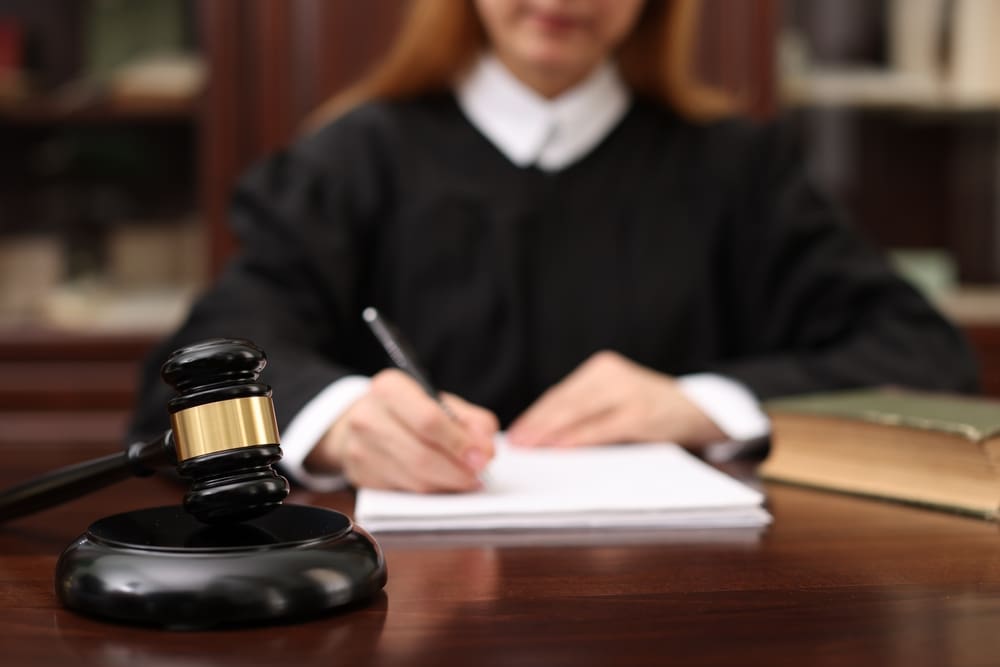
Legal advice vs AI “advice”: Why clients should think twice
In recent months we at Tees Law have observed an increasing number of clients attempting to rely on legal guidance

We don’t just look after you, we look out for you. That means we bring you insights, advice and keep you up to date on all kinds of legal matters so you can keep ahead.
We match a member of the team with the right expertise to every client, who will invest time getting to know you, who will look after your interests and ensure you have access to the whole firm when you need it.
The legal and financial matters might be complex, but we aim to keep things straightforward and explain everything in terms that are relevant to you.
Sometimes families can have differing views of what a deceased relative wanted or intended in their will. Promises may have been made verbally, or there may be concerns about the validity of a will. If you think you need to contest a will, talk to someone with the legal knowledge and expertise to help you decide the best course of action.
There are a lot of reasons someone might be able to contest a will, from the mental state of the deceased person when they made the will, to provision for dependents. It’s also important to consider your circumstances if you decide to proceed. Our specialist contentious probate solicitors can help you make the rights decisions and secure a good outcome.
If you want to contest a will, seek expert legal advice as soon as possible. Time limits to do this vary. There is generally six months from the date of probate, although this is different in cases of fraud. If possessions from the estate have already been distributed this makes it more difficult to get what is due to you.
If you’d like to meet one of our experts for a confidential, no obligation chat, please get in touch.
We have offices across Cambridgeshire, Essex and Hertfordshire, but we can help you wherever you are in England and Wales.

A really great team of people working here who cover a range of private client and related matters.
Legal 500 UK, 2026

Read our helpful guide on how to contest a will.
Please complete this form and one of our team will be in touch with you shortly.
A Will can only be contested on specific legal grounds. If the party who intends to contest the Will is unable to reach a resolution with the executors and beneficiaries of the Will, then an application will need to be made to court, setting out the basis of the challenge to the Will.
Anyone with a claim against an estate that relates to the content, drafting or execution of the Will can potentially challenge a Will. The most common claimants are spouses, children, family members or dependants of the deceased and beneficiaries of the Will, or creditors. Claims can also be made against an estate if a claimant was promised to be remembered in the Will by the deceased, which they relied on, but did not receive. Close family members, dependants and cohabitees can also make an claim against an estate on the basis that the Will failed to make reasonable provision for them.
Usually, it is important to take advice quickly following a death, for a number of reasons, if you think you may have a claim. A claim for reasonable provision must be issued within 6 months of the grant of probate (which can be extended in certain circumstances). Therefore, it is necessary to contact the executors of the estate as soon as possible, to try and reach an agreement, without having to issue court proceedings. The same time limit does not apply if you are challenging the Will, but it is sensible to proceed as soon as possible, as so as to avoid unnecessary evidential difficulties and to avoid adverse tax or cost implications for the estate.
It is sensible to engage the services of a specialist solicitor. They will contact the executors of the Will on your behalf to notify them of your potential claim. Depending on the type of claim you have, your solicitor may recommend that a caveat is entered to prevent a grant of probate being obtained in respect of the Will. If resolution of your claim cannot be agreed between you and the executors and beneficiaries of the Will, an application to the court may be necessary.
Each party is responsible for their own legal costs. An agreement may be reached whereby your legal costs are paid by the estate. If your claim is determined by the court and you succeed, you can ask the court to determine which party should pay your costs.
The overall cost of dispute will depend on the issues involved, the number of witnesses and documentary evidence involved, whether expert evidence is needed and the point at which a case is concluded.processes if needed.
Undue influence is where pressure, coercion or undue influence is exerted on the testator (the person making the will) so as to procure a Will in particular terms, that is not the expression or result of their own free will.
The basis on which a Will might be contested will depend on the particular circumstances. Evidence might be gathered from witnesses, documents and/or experts. A specialist solicitor will be able to represent you and advise as to how best to proceed.
A claim could be issued by a litigation friend for a minor or by an attorney. Otherwise, the court would expect the claim to be issued by the person with the claim.
In the first instance there is an obligation on the parties to a dispute to attempt resolution without litigation via Alternative Dispute Resolution (ADR). If this is not possible court proceedings will be necessary.
Yes. A Will can be challenged on the ground that at the date instructions were given and/or the Will executed the testator lacked capacity. Medical records, witness evidence and expert psychiatric evidence is likely to be needed to prove the claim.

In recent months we at Tees Law have observed an increasing number of clients attempting to rely on legal guidance

The High Court’s decision in Rawbank S.A. v Banfield & Ors [2025] EWHC 3054 (Ch) provides important guidance on the

On 27 October 2025, the Renters’ Rights Act 2025 received royal assent, marking the biggest reform to the private rented

Who remembers Bodycare? The health and beauty chain that was a staple of every high street and shopping centre. It
–
–
–
–